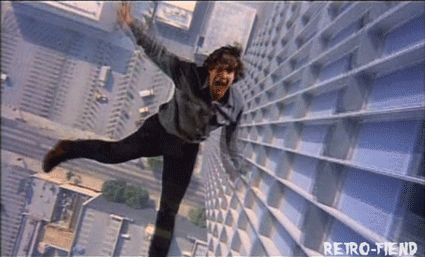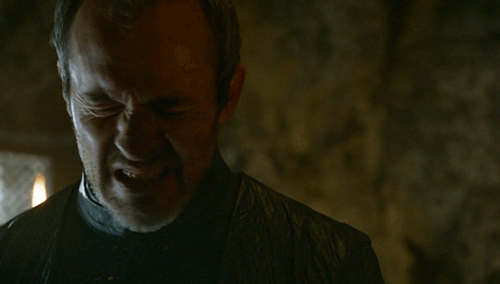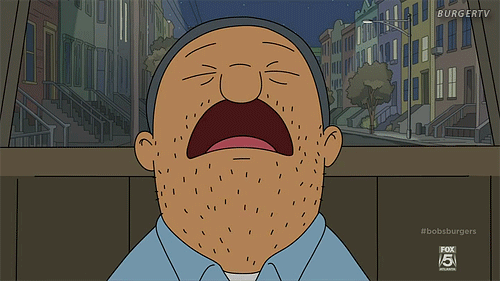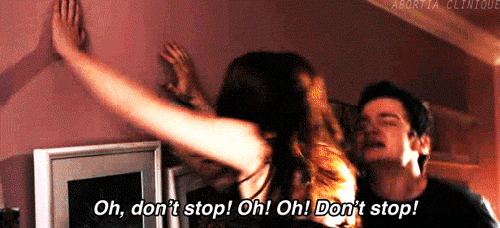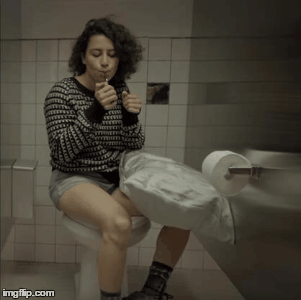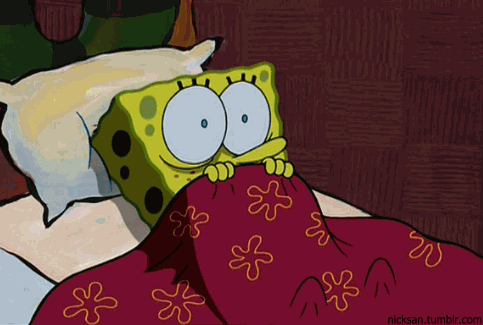Are You Suffering From Any Of These Weird Sleep Disorders?
*Don't fall asleep. Don't fall asleep!*
1. Hypnic jerk or sleep start is a common sleep disorder in which you experience sudden, jerky body movements as you're drifting into sleep and can feel like you've suddenly fallen, gasping for air
It’s a sudden increase in muscle activity that happens to just about everybody and can be quite literally startling. Some people just twitch and don’t wake up. Others actually cry out in fear. Making a noise during a sleep start is likely associated with a visual component, like plummeting to your death, for instance.
Experts don’t know the exact cause of sleep starts, but what seems to be happening is that there’s a neurological tussle between the brain systems that keep you awake and the ones that encourage you to fall asleep.
Sleep starts are usually harmless. But doctors do know that sleep starts can be worsened by sleep deprivation, having too much caffeine or tobacco, and taking stimulant medications or drugs that have stimulating qualities. {H/t: The Cut}
2. Exploding head syndrome is another strange, unpleasant and surprisingly common sleep disorder in which a person, at times sees flashes of light, or feels like his/her head has just 'exploded'
A sudden noise, then a jarring explosion of sound, electrical fizzing and a bright flash in vision, like someone has lit a spotlight in front of your face is what it's like to live with "exploding head syndrome". For others, it may be as if a bomb went off next to their head as they fall asleep. Sometimes it occurs just once in a lifetime, for others it happens multiple times a night.
Theories about the cause of an exploding head are speculative. Several ideas have been proposed, including ear disorders and partial epileptic seizures. But the most compelling theory is that there may be a burst of neural activity in the brain that coincides with the reported explosion.
While there is no cure-all treatment, antidepressants reduce occurrences, as do relaxation and stress-busting techniques. You can also help a lot just by reassuring a person that they’re not crazy or experiencing symptoms of a tumour or some other brain disorder. {H/t: BBC Future}
3. Teeth grinding or bruxism is a type of nocturnal sleep disorder that occurs, particularly at night while we are asleep and the person may clench, gnash, grit and or grind their teeth
It's a common problem that can lead to broken teeth, enamel damage, headaches, and temporomandibular joint (TMJ) disorders. At least 10 percent of the adult population engages in clinically significant nocturnal bruxism.
After many years of physicians and dentists trying to understand the cause of this nocturnal behaviour, we now understand that a significant cause of nocturnal bruxism is airway instability during sleep. If you grind or clench your teeth at night, wake up with temporal headaches or TMJ pain, you should consider seeing a sleep specialist, because you may have restricted airflow during sleep that could be causing cardiovascular problems as well. {H/t: HuffPo}
4. Sleep apnea is a common sleep disorder which has been categorised as a very serious medical condition in which people stop breathing for periods of time while they asleep
Each pause in breathing, called an apnea, can last for several seconds to several minutes, and may occur, by definition, at least 5 times in an hour. If you're suffering from this sleep disorder, chances of you being aware of having difficulty breathing, even upon awakening, are very rare.
Because of which a vast majority of people with sleep apnea are undiagnosed and untreated. And that’s a huge problem as research has shown that death rates among people who suffer from sleep apnea are significantly higher than the general population.
However, sleep apnea is treatable and if you have it, you should absolutely get treated for it. Major signs to look out for: loud snoring, occasionally waking up gasping for air, and sleepiness during the day. People who are overweight are also at higher risk for sleep apnea, and drinking alcohol can make symptoms worse. {H/t: BuzzFeed}
5. Sleep sex or sexsomnia is a type of sleep disorder, considered to be a distinct variant of sleepwalking, in which people may commit sexual acts, like moan in ecstasy, while they are asleep
Sufferers of sexomnia reportedly engage in sexual acts during sleep and rarely remember them happening. Often the sexual acts are aggressive in nature. These sex acts can include masturbation, fondling, intercourse, and even rape. In extreme cases, sexsomnia has been alleged, and accepted, as at least a part of the cause of sexual assault, including rape.
People think that the diagnosis of sexsomnia is used to justify inappropriate sexual advances. However, doctors have been able to document abnormal patterns of REM (rapid eye movement) or non-REM sleep, something impossible to fake. The majority of cases also had other psychiatric diagnoses. Fortunately, sexsomnia can be successfully treated with psychotropic medications. {H/t: CNN}
6. Narcolepsy is perhaps one of the best known, and yet still weird, sleep disorders which has a tendency to put people to sleep unexpectedly while they are engaged in normal, everyday activities, such as driving, jogging or washing dishes, etc.
A neurological sleep disorder that is commonly associated with falling asleep at random times. Narcoleptics tend to fall directly into REM sleep when most dreaming occurs, and less commonly enter deeper and more restful stages of non-REM sleep. Another symptom can include cataplexy, the sudden collapse of an individual into REM sleep upon experiencing strong emotions.
People with narcolepsy can fall asleep at any time without warning. They can stay asleep for a few minutes to a few hours. Not good if you're driving a car or doing something else that requires concentration.
The cause of narcolepsy has not been determined. It is widely believed to be an autoimmune disorder, but it may also be genetic. However, there are treatments for people who are suffering from narcolepsy. {H/t: ListVerse}
7. Somniphobia or hypnophobia is a type of sleep disorder which causes irrational and excessive fear of sleep resulting either from a feeling of control loss or from repeating nightmares
It's an uncommon sleep disorder and usually affects children slightly more often than adults but is not age-specific, in general. Somniphobia can be caused due to a variety of factors including a traumatic incident, extra pressure at work, fear of surroundings, fear of people, etc., and even a dark room can also cause Somniphobia.
Somniphobia is more of a symptom of something else that's going on. If you or someone else is suffering from it, see a physician for sleep evaluation so you can get the treatment, and then get used to going to sleep again. {H/t: HuffPo}
